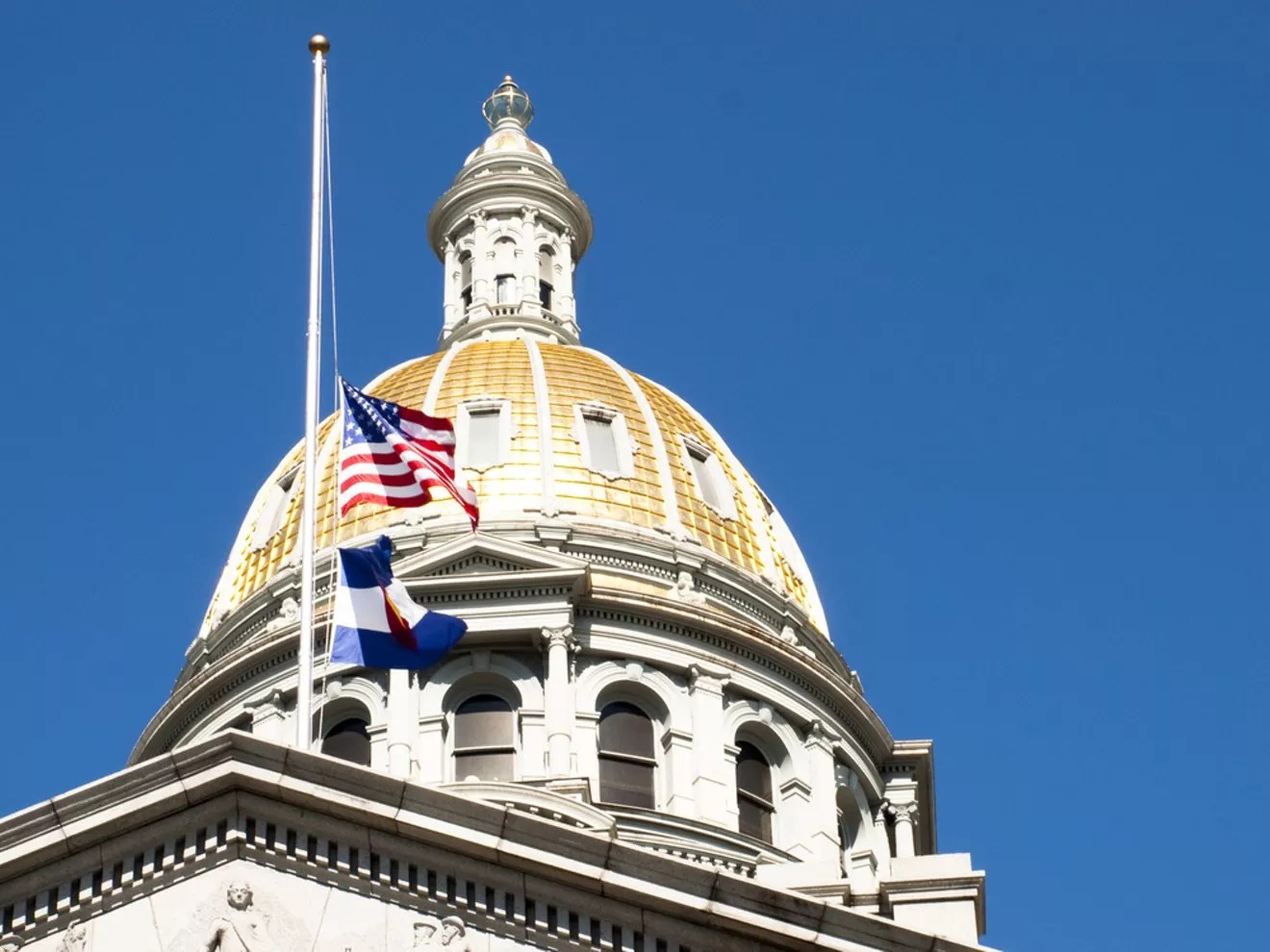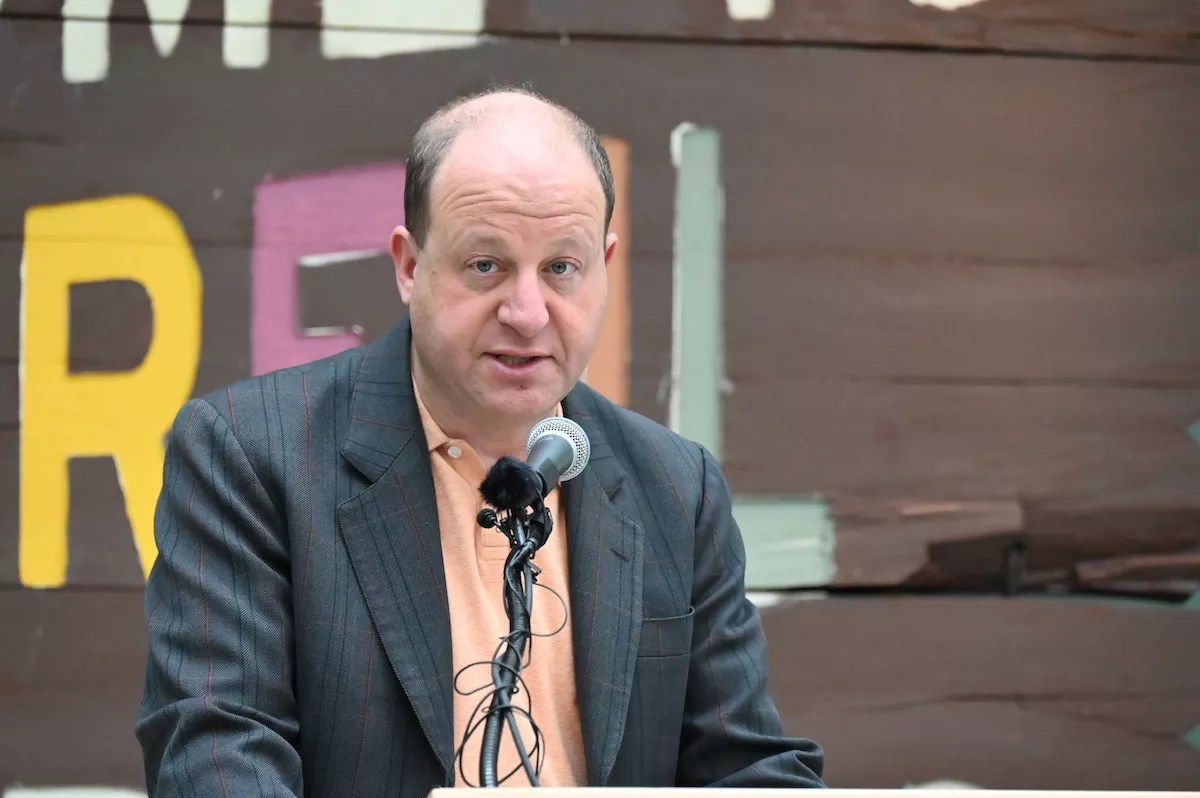
Arina P Habich/Shutterstock.com

Audio By Carbonatix
The Colorado Polling Institute has released the results of its first statewide poll, which shows Coloradans are generally as cold as the weather when it comes to the fairness of society and their trust in public institutions.
After releasing results from polls on Denver’s future and the Denver Public Schools Board of Education earlier this year, the recently formed CPI has turned its attention to people’s opinions on the Centennial State as a whole, conducting a survey of 652 likely 2024 general election voters among residents from all over. Democratic polling group Aspect Strategic and Republican group Cygnal collected the data on November 26 and 27.
Researchers found that 59 percent of people surveyed believe a good standard of living is unattainable in Colorado, even if you work hard and play by the rules. Only 32 percent believe that if you follow this mantra you’ll attain a good standard of living in the state.
“We now have large majorities of Coloradans telling you that the core pillars of the American Dream, like homeownership and success through hard work, are becoming unattainable in Colorado,” Kevin Ingham of Aspect Strategic said at a December 12 press briefing.
The housing market was of particular concern to these voters, coming in third as the top priority for those surveyed behind the cost of living and crime and public safety. Although people think the state will remain good for businesses and schools moving forward, 63 percent believe the housing market will get worse in the coming years.
“While longtime residents and newcomers are on different pages on a lot of things, the housing market is one place where they are in lockstep,” Ingham said. No matter how long people have lived here, they don’t think it’s a good place to buy a home anymore.
They also don’t trust many public institutions.
The CPI asked voters how much confidence they have in Colorado institutions to do the right thing, calling out seven specifically: small businesses, people who administer elections and count state ballots, local governments, local journalists, the state government, the federal government and large corporations.
Of those seven, only small businesses and election administrators were trusted by the majority of those surveyed.
One thing of note: The results for election officials were heavily split down partisan lines, with 79 percent of Democrats, 59 percent of Independents and 25 percent of Republicans saying they trust them.
“We’re in a period nationally where trust in most institutions is at or near a historical low,” Ingham said, citing Gallup polling. “We felt it was important to lay down a baseline for Coloradans’ trust here at home, both so that we could look at the health of our democracy today, and also so we could track that out into the future.”
Local government, journalists and state government all received middling scores in the CPI poll, with 40 percent of people distrusting local government, 39 percent distrusting journalists and 45 percent distrusting state government. Owing to the number of neutral responses in these categories, none of the three received a positive score on trust, either.
“If we flip to the bottom side of this list, there are only two groups of the seven that we tested who are actively distrusted by a majority: the federal government and large corporations,” Ingham said.

According to the poll, 45 percent of people distrust the state government, which is currently headed by Governor Jared Polis.
Bennito L. Kelty
The federal government was strongly distrusted, with 42 percent of people saying they distrust it a lot and another 20 percent saying they distrust it a little. Almost no one said they trust large corporations a lot, with fewer than 5 percent of people registering high trust in such businesses.
“Large corporations are distrusted by majorities of all parties, and skepticism is particularly high among lower incomes and voters of color,” Ingham described. “Each of these results individually is interesting but it is the cumulative wealth of trust in societal institutions and actors that determines the stability of our democracy. To that end, we developed what we’re calling the CPI Distrust Index.”
Each person polled was given a score from zero to fourteen, with zero meaning they had trust in every institution and fourteen meaning they had no trust in any institution. The results showed 48 percent of people have low distrust, 30 percent have medium distrust and 21 percent have high distrust.
“When you aggregate an index like this, it comes out pretty clearly that the distrust in our society has a distinctly partisan and ideological curve,” Ingham said. “Just 4 percent of Biden voters are high distrust and nearly half of Trump voters are high distrust.”
When the pollsters broke the index down by race, education and income, the results were similar – white voters were much more trusting than voters of other races, and voters with more education are more trusting than those with lower levels of education.
“The reason we point this out is because in a healthy democracy, across ideology and partisanship, we should be able to trust our institutions,” Ingham said, calling the fact that so many people don’t a “concerning trend.”
According to social entrepreneur and investor David Carlson, who founded the CPI, its purpose is to become a trusted institution that provides data that decision makers can use. However, the organization hasn’t been very transparent, and it refuses to disclose who funds the research.
“We believe that a thriving democracy requires understanding the sentiments of voters and citizens on an ongoing and deeper basis, not just the results of binary elections every two years,” Carlson said during the December 12 briefing.
The CPI’s results showed that half of voters believe the state is heading in the right direction and 43 percent say it is on the wrong track. “Those who think that the state is heading in the wrong direction are concerned about cost of living,” Ingham said.
That includes the rising cost of rent, which 43 percent of people blame on market forces, the CPI found; 39 percent blame greed and price gouging, and 14 percent believe it is due to something else.
“Attitudes on this question were less partisan than you might think,” Ingham said. “Both Republicans and Democrats were more likely to point to market forces than greed…but there were some divides by race, homeownership status, education and income.”
While white voters were more likely to blame market forces, most non-white voters cited greed. Renters also pointed the finger at greed, while homeowners blamed market forces. Those who make over $125,000 annually pinned rent increases on market forces as well, while most of those making under $50,000 per year said greed.
“We found this interesting not just because it is so evenly divided and sort of conspicuously nonpartisan, but also for how socioeconomics took the place of partisanship as a dividing line on this question,” Ingham said.
Additionally, everyone – regardless of party – thinks taxes are too high in Colorado. But that didn’t stop the legislature’s special session on property taxes last month from going largely unnoticed.
According to the CPI, a majority of those polled hadn’t heard enough about the session to form an opinion.
The survey also asked about big issues like transit-centric development and homelessness, where it discovered that people are very divided when it comes to specific policy questions on each. The CPI plans to measure fluctuations in opinion throughout the upcoming legislative session and will be releasing an election-focused poll on December 14 that examines a hypothetical race between Joe Biden and Donald Trump.
“There are two ways that I think we can help set the agenda,” Carlson said. “One is pointing out where Coloradans are and where their focus is. … During the middle of the session, we’ll be back in the field with another poll that will be informative as to the direction of the legislative session.”